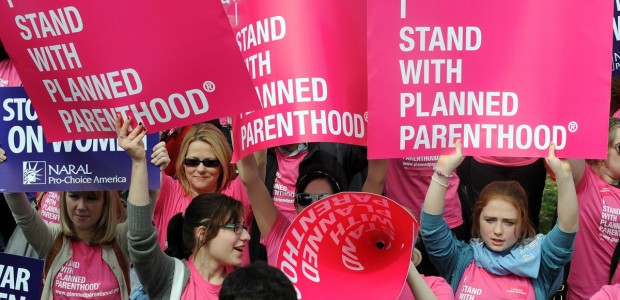Over thirty years ago, Nancy G. Brinker watched as her sister, Susan G. Komen, was losing her battle with breast cancer. Nancy promised her dying sister that she would do everything possible to end the disease, and in 1982 began the long process of fulfilling that promise by founding Susan G. Komen for the Cure.
What began as a humble mission by a loving sister has evolved into a massive grassroots network of breast cancer survivors and activists, which has invested approximately two billion dollars into ridding the world of breast cancer.
For example, in January of this year, Susan G. Komen’s “Perfect Pink Party” raised over $1 Million to fund various breast cancer programs. On May 3, 2012, Susan G. Komen is planning its second “Susan G. Komen Israel Race for the Cure” in Jerusalem.
Sadly, controversy has recently ensued regarding the funds invested by Susan G. Komen. The issue is that Susan G. Komen, a private non-profit institution, has a policy that it will not award grants to organizations that are currently under investigation by local, state or federal authorities. Planned Parenthood, a long-time recipient of Susan G. Komen dollars, receives almost half a billion dollars annually from the Federal government, and has been under investigation by Congressman Cliff Stearns for misusing those funds.
Congressman Cliff’s investigation was spurred in part by a video of Planned Parenthood workers advising a fake sex trafficker and prostitute how to obtain medical services, and a New Jersey Planned Parenthood employee using a highlighter to circle an address where a 14 year-old could get an abortion.
Simply put, in Rep. Stearns words, “The American taxpayers have a right to know after more than 55 or 60 years, how this money is being spent.” Consistent with Susan G. Komen’s policy of refusing funds to organizations under investigation, Susan G. Komen announced earlier this year that it would no longer contribute to Planned Parenthood. Given Planned Parenthood’s political clout and popularity in the pro-choice movement, a massive organizational effort ensued to pressure Susan G. Komen to reverse the decision not to contribute to Planned Parenthood.
The wave of pressure culminated with 26 United States Senators writing to Susan G. Komen urging the group to reconsider. On February 3, 2012 Susan G. Komen did reverse the decision to end its contribution to Planned Parenthood, and amended the grant policy to exclude investigations that it determines to be “political” in nature.
On February 7, 2012, Nancy Brinker attempted to calm the political storm by accepting the resignation of the Senior Vice President for Policy, Karen Handel, and releasing the following statement:
“Susan G. Komen for the Cure’s mission is the same today as it was the day of its founding: to find a cure and eradicate breast cancer. We owe no less to our partners, supporters and, above all, the millions of people who have been and continue to be impacted by this life-threatening disease. We have made mistakes in how we have handled recent decisions and take full accountability for what has resulted, but we cannot take our eye off the ball when it comes to our mission. To do this effectively, we must learn from what we’ve done right, what we’ve done wrong and achieve our goal for the millions of women who rely on us. The stakes are simply too high and providing hope for a cure must drive our efforts…”
As a side note, it’s important to remember that all women should get screened for breast cancer on a regular basis!
